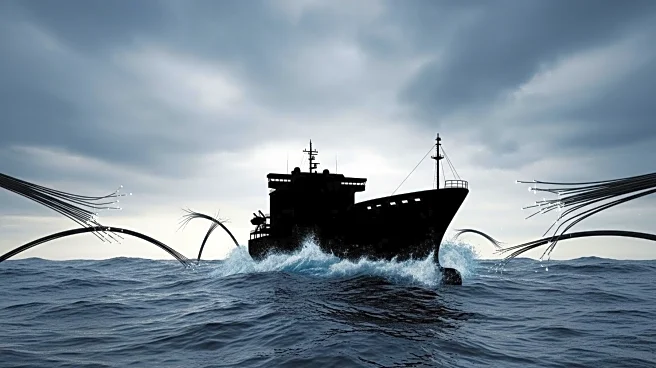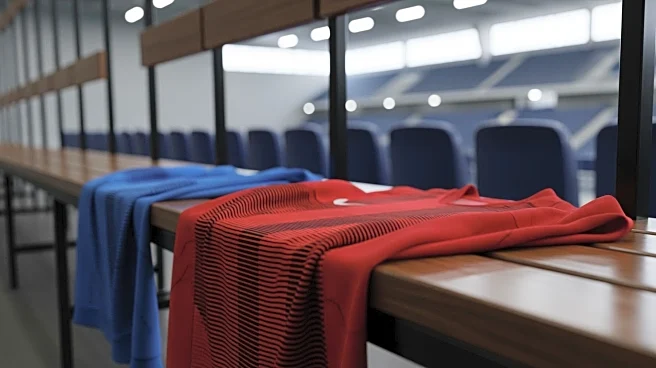What is the story about?
What's Happening?
A ship is suspected to have cut undersea cables in the Red Sea, disrupting internet access across Africa, Asia, and the Middle East. The International Cable Protection Committee indicated that commercial shipping activity, such as a vessel dragging its anchor, is the probable cause of the damage. This incident highlights the vulnerability of these cables, which are crucial for internet connectivity. The affected cables include the South East Asia–Middle East–Western Europe 4, the India-Middle East-Western Europe, and the FALCON GCX cables, among others. The disruption has affected internet services in at least 10 countries, including India, Pakistan, and the United Arab Emirates.
Why It's Important?
The disruption of undersea cables can have significant impacts on global internet connectivity, affecting businesses, governments, and individuals who rely on stable internet access. The incident underscores the fragility of the infrastructure that supports global communication networks. With internet service providers forced to reroute traffic, users may experience increased latency and reduced service quality. This event also raises concerns about the security and maintenance of critical infrastructure, especially in geopolitically sensitive regions like the Red Sea.
What's Next?
Efforts to repair the damaged cables are likely to be underway, but the process can be time-consuming and costly. Stakeholders, including governments and internet service providers, may push for enhanced protection measures for undersea cables to prevent future incidents. Additionally, there may be calls for international cooperation to ensure the security of these vital communication links.















